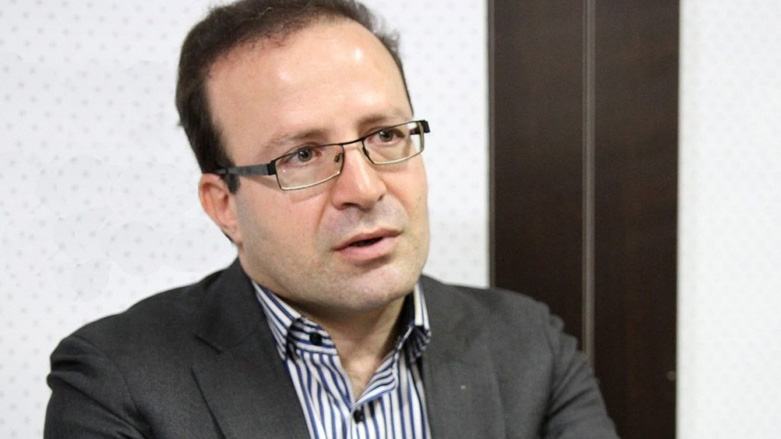Iran arrests British-Kurdish academic in Tehran
Kameel Ahmady, a British-Kurdish academic originally from the city of Mahabad in Iran, was arrested on Sunday and jailed in the infamous Evin prison in Tehran on unclear charges.

ERBIL (Kurdistan 24) – Kameel Ahmady, a British-Kurdish academic originally from the city of Mahabad in Iran, was arrested on Sunday and jailed in the infamous Evin prison in Tehran on unclear charges.
Ahmady’s wife, Shafagh Rahmani, posted on her Instagram account that she was informed he would be jailed for “at least one month.” Charges against Ahmady for which he was detained remain unclear.
“With this [...], we are seeing a continuation of a pattern of arrests by Iranian authorities of dual nationals, and others with ties to the West, is that is increasingly extending into the world of academia as well,” said Gissou Nia, a human rights lawyer and nonresident fellow at the Atlantic Council focused on Iran, told Kurdistan 24.
While human rights defenders are aware that Iran can be unsafe, academics have remained in somewhat of a gray area. Ahmady himself worked on research for years in Iran without even the threat of an arrest.
"My husband was granted British citizenship 25 years ago but has been living in Iran for the past fifteen years," Ms. Rahmani told Radio Farda on Wednesday.
He is not the only academic who has been jailed, however. Others academics with dual nationality have been detained, such as the French-Iranian academic Fariba Adelkhah, who was arrested in July of this year. Chinese-American academic, Xiyue Wang, has been in jail in Iran since 2016.

Iranian-Canadian sociology professor and environmentalist, Kavous Seyed-Emami, died under suspicious circumstances in Evin prison in February last year.
Gissou Nia argued that these arrests, as well as the imprisonment of Iranian-Canadian anthropology professor Homa Hoodfar, Iranian-American academic Haleh Esfandiari, and others in academia, will lead academics to “revisit” their beliefs that research can be carried out “safely” in Iran.
“Of course, Ahmady’s arrest is also occurring against the backdrop of recent tensions in the Iran-UK relationship, caused by tanker seizures which prompted the British Foreign Office to advise against travel to Iran for all British-Iranian dual nationals.”
Another British-Iranian dual national, charity worker Nazanin Zaghari-Ratcliffe, was arrested in April 2016 and sentenced to five years in prison.
So far, the UK government has not responded to Ahmady's arrest.
Ahmady holds a post-graduate degree in anthropology and visual ethnography from the University of Kent and worked on community development programs with a focus on Female Genital Mutilation (FGM), early child marriage, and male circumcision.
In 2009, he published a guideline for traveling to the 15 provinces inhabited by Kurds in Turkey, titled “Another Look East and Southeast of Turkey”.
More importantly, in 2015, he made the first authoritative and comprehensive study on FGM in Iran, a story that was picked by major news outlets such as the Guardian and the BBC.
His research opened up a discussion and debate within the UN and UNICEF on FGM in Iran.
As part of his research, he also made the documentary In the Name of Tradition, based on interviews in Kurdish villages and neighbourhoods of Mahabad.
Ahmady was also working on other somewhat taboo research topics such as temporary marriages in Iran, identity and ethnicity, and homosexuality.
Editing by Nadia Riva